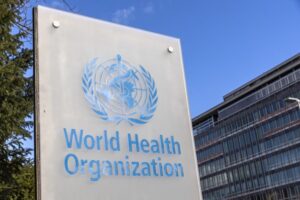If I Were President, I Would Not Sign This Treaty
I’m Hoping Biden Won’t Either

WHO headquarters in Geneva, Switzerland
I haven’t commented on this story, although I’ve been following it for more than a year. The proposition seemed so outlandish, I couldn’t believe it would succeed.
But here we are.
Members of the World Health Organization are being called to sign a treaty later this month that would make the WHO the central authority to create social, medical, and personal protocols that they would all follow in future pandemics.
The idea seems reasonable. Since pandemics are usually worldwide, the goal of the treaty would be to enhance “the capacity of countries to prevent, prepare for, and respond to pandemic emergencies.”
This would be done by requiring its 194 member nations “to share data and laboratory samples from emerging outbreaks quickly, safely, and transparently… [and] support more equitable and timely access to, and delivery of, vaccines, diagnostic tests, and treatments and other mitigation measures.”
My concern is twofold.
First, there is the natural propensity of all bureaucracies to grow. And the only way for them to grow is by issuing more rules and requirements that may or may not be necessary.
Second, the protocols already acknowledged in the treaty documents could include all of those that were recommended by the WHO – and then mandated by the CDC and NIH – during the COVID-19 pandemic.
That constitutes a big rule book. From masks and vaccine cards and quarantines to travel restrictions and the use of public and private spaces. (Like how many people you can invite to dinner.)
Not to mention what medical procedures and products will be allowed to be used to treat pandemic-related illnesses, and how public institutions should account for public health data (e.g., death and injury reports).
Opponents of the treaty are concerned that it would give the WHO too much authority in deciding which medical and social rules and requirements its members should institute. Supporters of the treaty say such worries are unmerited. The way the document is written, they say, the WHO would not have the power to mandate protocols or punish the countries that wanted to opt out of them.
For the past year, the Biden administration has taken a favorable view of the treaty, although it has disputed some of the considerations about how exactly it will be organized and how much of the cost of running it the US will have to pay. But recently, a bunch of Republicans and a couple dozen State Attorneys General have come out against it.
They seem to share my concern – and it is a serious one: Even if the US is not bound to follow the WHO’s recommendations, it is very possible that, as signatories of the treaty, the CDC and NIH will adhere to them, just as they did during the COVID-19 pandemic.
That could mean that every year or two, US citizens would find themselves being forced to wear masks, to be quarantined in their homes, to keep their kids at home rather than sending them to school, and generally making all the mistakes they did in 2020 and 2021 – resulting in billions of dollars of wasted funding, the decimation of many small businesses, and serious negative responses to the vaccines (including death).
Recently, there has been some pushback from Congress and State AGs. You can learn more about it here and here and here.
 MarkFord
MarkFord








